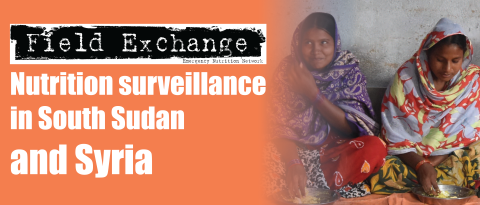How Ebola virus disease affected nutrition in Sierra Leone – a food value-chain framework to improve future response strategies
Research snapshot1
In 2014-2016 an outbreak of Ebola virus disease (EVD) in Sierra Leone resulted in 14,124 cases and 3,956 deaths. This qualitative study sought to understand how the outbreak impacted the nutrition sector in Sierra Leone and to consider a nutrition preparedness and response framework for planning for future outbreaks. In-depth interviews were conducted with key informants (n=21; government stakeholders, United Nations and non-governmental organisation staff) and community informants (n=21; EVD survivors, health workers and community leaders) and key themes identified.
Findings show that EVD outbreak effects and related response strategies contributed to disruptions across the multiple, interconnected systems comprising the food value chain for optimal nutrition in Sierra Leone, similar to disruptions seen in large-scale earthquakes. Direct and indirect effects were experienced on agricultural production and food storage and processing, as well as on distribution, transport, trade and retailing. Interviews described the aggregate negative effect of this outbreak on food security, infant and young child feeding practices and nutrition. In particular, 21-day quarantines to restrict population movement placed additional economic and social burdens on people that contributed to individual and household diet-related challenges. Infants and young children were disproportionately affected through impacts on breastfeeding, complementary feeding and caregiving practices; both indirectly by EVD and indirectly through market disruption and disease-containment measures.
Food assistance during the response (treatment for acute malnutrition and food baskets to improve household food security) was highly accepted and sharing was reported. Nutrition-sensitive interventions were not central to the initial response, despite impact of EVD across the food value chain. Instead, EVD containment and survival took priority. Culturally appropriate social and behavior change communication was a critical response component for improving health, nutrition and hygiene-related behaviours through community engagement.
In preparation for future outbreaks of this magnitude, a food value-chain approach may prove useful for policy and planning, including developing improved guidelines for employing coordinated, nutrition-specific and nutrition-sensitive approaches to address immediate and underlying determinants of nutrition.
Endnotes
1Kodish SR, Bio F, Oemcke R, Conteh J, Beauliere JM, Pyne-Bailey S, et al. (2019) A qualitative study to understand how Ebola Virus Disease affected nutrition in Sierra Leone—A food value-chain framework for improving future response strategies. PLoS Negl Trop Dis 13(9):e0007645. https://doi.org/10.1371/journal.pntd.0007645


